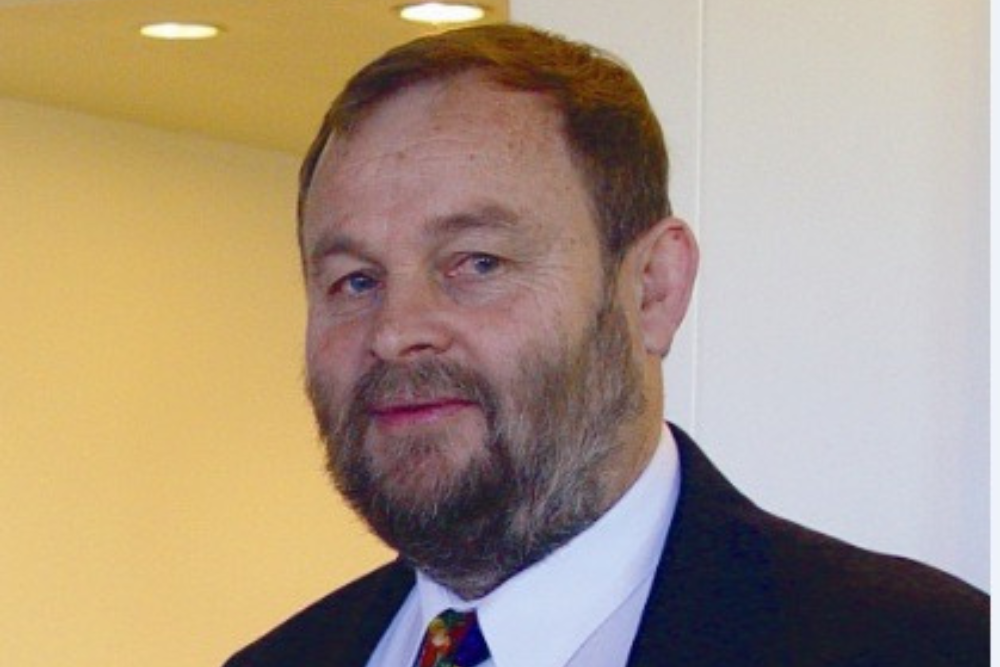Trevor Ranford
Trevor Ranford has received a 2022 Australian Biosecurity Award in the Industry category.
Trevor is recognised for his contribution to the management of the 2010 to 2020 national chestnut blight emergency response. Over the course of his 45-year career, Trevor has been a passionate advocate for the industries he represents, including Chestnuts Australia Inc., the Pistachio Growers’ Association Inc., Hazelnut Growers of Australia Inc., the Australian Walnut Industry Association Inc., and Summerfruit Australia Ltd.
Despite a difficult beginning and numerous challenges, Trevor was instrumental in building a stronger partnership between Agriculture Victoria and Chestnuts Australia Inc. to ensure practical outcomes for industry for the long-term management of chestnut blight. Trevor and the chestnut industry were adamant that chestnut blight could be eradicated, despite many views that it could not.
Trevor worked proactively with Agriculture Victoria to develop a transition-to-management plan, which enabled the industry to manage chestnut blight. The plan focused on empowering growers to identify and manage the pest on their properties. Trevor successfully recruited an industry biosecurity officer to support field work during the height of the COVID-19 pandemic in Victoria in 2020.
Trevor’s leadership has:
- strengthened awareness of the chestnut industry and the broader community in the management of chestnut blight
- resulted in a sustainable and effective industry-led surveillance program that supports ongoing on-property management of chestnut blight and pest status claims
- enabled the effective management of chestnut blight in a long-term, sustainable manner.
Despite the response officially ending in December 2020, Trevor advocated to secure funding from Agriculture Victoria to support further work on chestnut blight until 2023. Funding will continue to support Chestnuts Australia Inc. and the industry biosecurity officer, under Trevor’s leadership, to identify and manage chestnut blight into the future.
Trevor was also involved in the national emergency response to khapra beetle (2020 to 2022). This response was coordinated by the Australian Government and delivered across 5 states – a first in size and scale for an emergency plant pest response. Trevor was open to the development of a risk-based approach, which led to the establishment of a technical working group focused on national risk pathways and mitigation measures. His continued engagement with the group and open, inclusive approach with technical experts resulted in a practical, risk-based national position that contributed to a multimillion dollar saving in the program.
Trevor Ranford was nominated by Dr Rosa Crnov from Agriculture Victoria.
Watch a video about Trevor’s work
Introduction
This is the accessible text transcript of a 2022 Australian Biosecurity Awards winner video featuring Trevor Ranford.
Transcript
Hello, my name is Trevor Ranford, and I’m honoured to have been selected as a winner of the 2022 Australian Biosecurity Industry award. While the award might be for me as an individual, I would like to dedicate this award to all Australian horticultural producers who are the backbone of the Australian biosecurity and pest and disease management.
Just over 45 years ago I commenced work with the South Australian nursery industry. My role then was to assist nurseries and garden centres in reducing their involvement in the spread of Phytophthora cinnamomi, a soil-borne root rot disease. This was one of the first biosecurity best practice programs within Australia.
In 1997, as general manager of the South Australian Apple and Pear Growers Association, I was part of the industry government team that dealt with a reported outbreak of fire blight in the Adelaide Botanic Gardens. What followed the initial incident was a 3-year eradication program. Australia is one of a few, if not the only country, that can claim to have eradicated fire blight.
Over the past 15 years, I’ve worked for, and assisted, a number of horticultural industries in dealing with exotic and endemic pests and diseases. These include the Chestnut Blight Eradication Program, incidents of khapra beetle, brown marmorated stink bug, hazelnut mite, exotic fruit fly, Queensland fruit fly and Mediterranean fruit fly, and more recently varroa mite and the shot hole borer. Unfortunately, the incidents of exotic pests and diseases keep increasing.
I’d like to thank Dr Rosa Crnov, the Victorian Chief Plant Protection Officer, for nominating me. Also thanks to those other industry representatives and departmental staff who may have supported the nomination.
I’d like to thank all those involved in the Australian biosecurity area. This includes those in the federal, state, and territory agencies, all those involved in Plant Health Australia such as board members, management and staff, and the many industry biosecurity representatives, especially those on the front line, managing the many incidents. Australia is in a strong biosecurity position because of you and your hard work.
For the future, I believe we need a biosecurity service, similar to the SES or CFA, where we have volunteers trained and available to assist in biosecurity incidents. As the incidents increase and become more complex, this service is going to be essential, and I would love to be a part of its formation.
Again, thank you for the award, and I look forward to Australia continuing to be free of the many exotic pests and diseases that could affect our horticultural industries.




